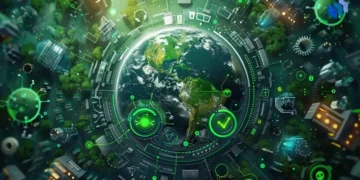Smart Homes for a Sustainable Future: Integrating Technology and Eco-friendly Living
Introduction
As global awareness of environmental issues grows, so does the interest in sustainable living practices. Smart homes, which integrate technology with eco-friendly design, are at the forefront of this movement. These homes not only provide comfort and convenience but also significantly reduce ecological footprints. This article explores how smart homes contribute to a sustainable future by integrating advanced technology with eco-friendly practices, enhancing both efficiency and sustainability.
The Essence of Smart Homes
What is a Smart Home?
A smart home uses advanced systems and connected devices that allow automated and remote control over various home aspects including heating, lighting, security, and entertainment. This integration of technology enhances the living experience while optimizing resource use, thereby supporting sustainable practices.
Benefits of Smart Homes
Smart homes offer numerous benefits:
- Energy Efficiency: Automated systems like smart thermostats and intelligent lighting adjust energy usage based on real-time needs, reducing waste.
- Cost Reduction: Lower energy consumption results in reduced utility bills.
- Convenience and Comfort: Remote controls and voice-activated systems add comfort and ease of use.
- Enhanced Security: Integrated security systems offer real-time alerts and remote monitoring.
Smart Technology for Eco-friendly Living
Key Technologies in Smart Homes
- Smart Thermostats: These devices learn a household’s patterns and adjust heating and cooling for optimal energy use.
- Intelligent Lighting Systems: Use of LED lights and sensors that adjust the brightness based on time of day and presence in the room.
- Energy Management Systems: These systems provide a central point of control and monitoring for all home energy flows, helping to reduce consumption and increase energy saving.
Integrating Renewable Energy
Smart homes often incorporate renewable energy sources like solar panels or wind turbines. The integration of these technologies with home energy management systems enables:
- Increased self-consumption of renewable energy
- Reduced dependency on non-renewable power sources
- Lower greenhouse gas emissions
Addressing Common Questions
How Do Smart Homes Impact the Environment?
Smart homes reduce reliance on non-renewable energy sources and decrease overall energy consumption. By efficiently managing energy use, these homes help in lowering carbon emissions and other environmental impacts associated with energy production and consumption.
Are Smart Homes Affordable?
Initial setup costs for smart homes can be high; however, the return on investment through energy savings and increased property value often offsets these costs. Additionally, various government incentives for energy-efficient and renewable energy technologies can help reduce the setup costs.
What are the Challenges of Smart Homes?
Interoperability between different devices and ensuring privacy and data security are key challenges. However, advancements in technology and stricter regulations are gradually overcoming these hurdles.
Future Trends in Smart Home Technology
Advancements in AI and Machine Learning
Upcoming developments in AI will provide smarter, more adaptive home systems that can predict preferences and optimize energy usage more accurately, further enhancing both convenience and energy efficiency.
More Integration with Renewable Technologies
As renewable technology evolves, its integration with smart homes is expected to become more streamlined, boosting self-sufficiency and sustainability.
Conclusion
Smart homes represent a crucial development in the pursuit of sustainable living. By combining advanced technology with eco-friendly practices, these homes not only offer improved daily convenience and safety but also provide a solid foundation for a sustainable future. As technology continues to evolve, the potential for smarter, more efficient, and more sustainable homes becomes increasingly feasible.
Opting for a smart home is a step towards responsible stewardship of our planet’s resources, aligning modern living with the needs of the environment. Whether through new constructions or by retrofitting existing homes, integrating smart technology and renewable energy sources is among the most effective strategies for achieving an ecologically sustainable lifestyle.











